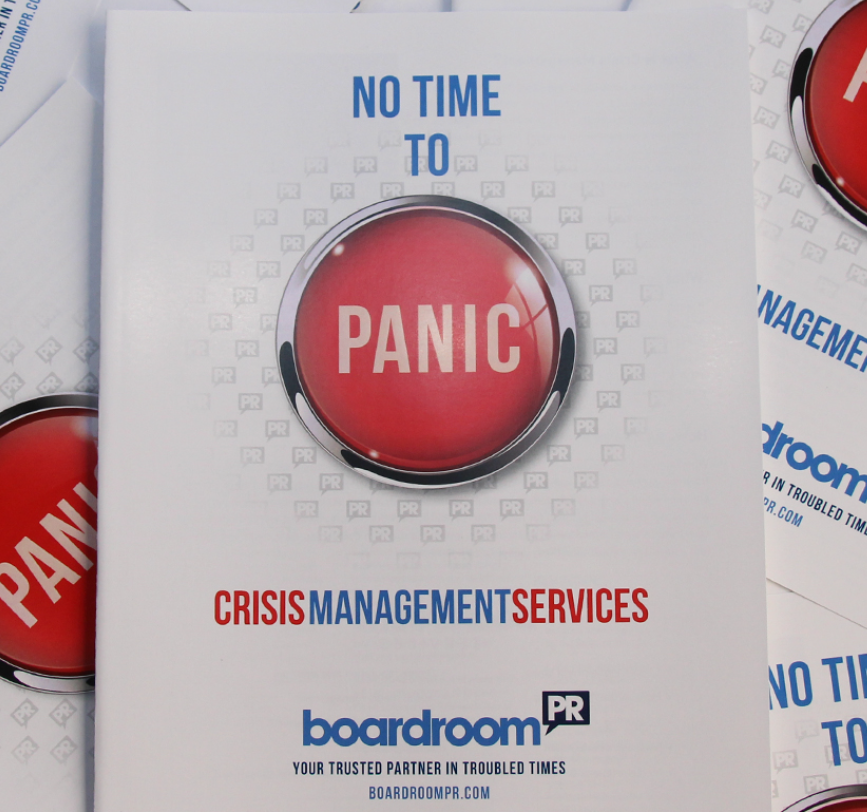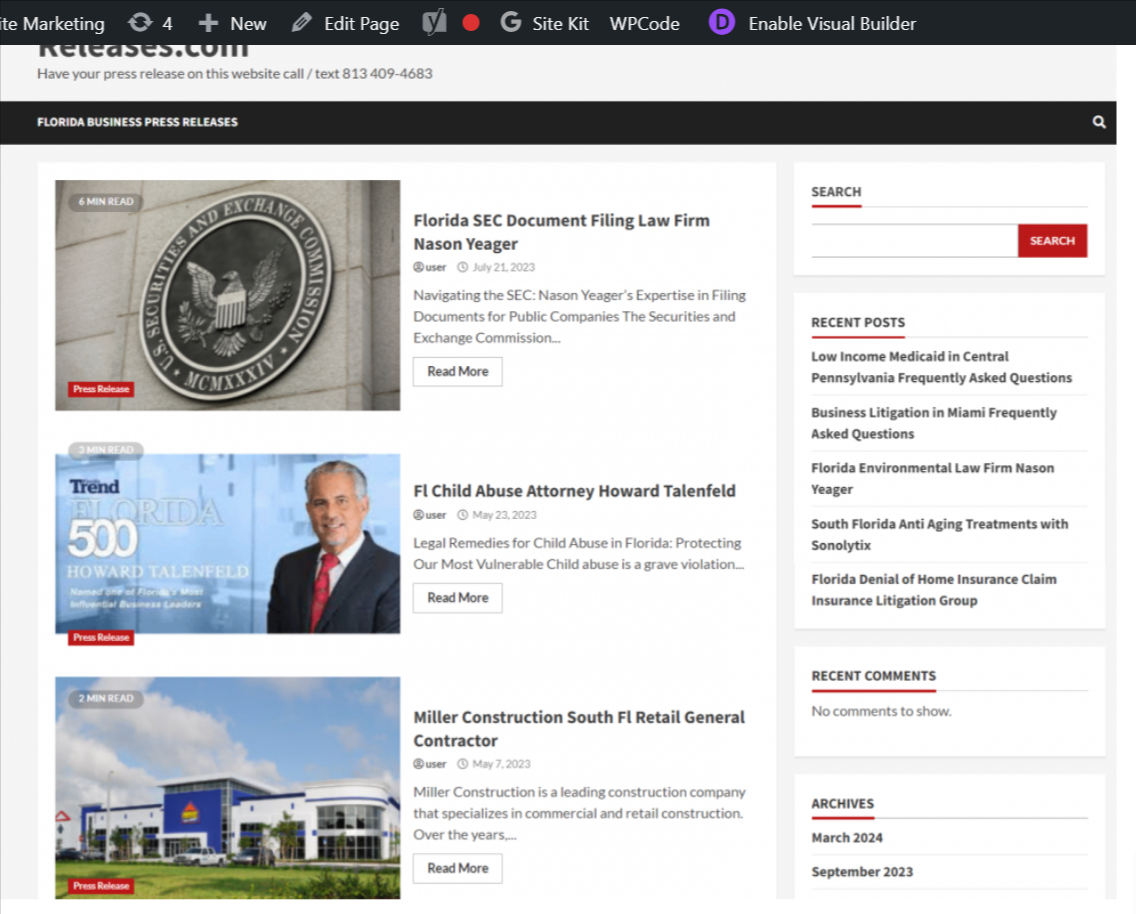Business crisis management is an essential aspect of running a successful Florida business. A crisis can arise at any moment, and it can potentially damage the reputation of a business, cause financial losses, and even result in the closure of the business. A business crisis can be caused by a variety of factors, such as natural disasters, cyber-attacks, supply chain disruptions, and even public relations issues. In this article, we will discuss what business crisis management is, why it is important, and how to implement an effective crisis management plan.
What is Business Crisis Management?
Business crisis management is the process of planning and executing strategies to mitigate the negative impact of an unexpected event that could potentially damage the reputation, financial stability, and continuity of a business. Crisis management is a crucial aspect of any business, regardless of size or industry. It involves identifying potential risks, developing contingency plans, and preparing employees to handle unexpected situations.
Why is Business Crisis Management Important?
A Florida business crisis can happen at any time, and its impact can be devastating. Here are some of the reasons why crisis management is crucial for businesses:
Protects Reputation: A crisis can severely damage a business’s reputation. By having a crisis management plan in place, businesses can quickly respond to the situation, minimize the negative impact, and protect their reputation.
Minimizes Financial Losses: A crisis can also result in significant financial losses. By having a crisis management plan in place, businesses can quickly assess the financial impact of the crisis and take steps to minimize the losses.
Ensures Business Continuity: A crisis can disrupt business operations, resulting in a loss of revenue and customers. By having a Florida crisis management plan in place, businesses can quickly resume operations and minimize the impact on business continuity.
Builds Employee Confidence: Employees are the backbone of any business, and a crisis can be a stressful time for them. By having a crisis management plan in place, businesses can reassure employees that they are prepared to handle any situation, which can boost employee confidence and morale.
Increases Customer Loyalty: How a business handles a crisis can have a significant impact on customer loyalty. By having a crisis management plan in place, businesses can show their customers that they are committed to resolving the situation, which can increase customer loyalty.
Steps for Implementing an Effective South Florida Crisis Management Plan
Identify Potential Risks: The first step in developing a crisis management plan is to identify potential risks. This includes identifying internal and external risks that could impact the business, such as natural disasters, cyber-attacks, supply chain disruptions, and public relations issues.
Develop Contingency Plans: Once potential risks have been identified, the next step is to develop contingency plans. This includes developing a plan of action for each potential risk and identifying the resources required to execute the plan. Contingency plans should include clear communication protocols, such as who is responsible for communicating with employees, customers, and stakeholders.
Train Employees: An effective crisis management plan requires the involvement of all employees. Employees should be trained on the contingency plans and their roles and responsibilities during a crisis. This includes training on communication protocols, how to evacuate the building, and how to respond to customers and stakeholders.
Test the Plan: A crisis management plan is only effective if it has been tested. Testing the plan involves running scenarios to identify any gaps or weaknesses in the plan. This allows businesses to make any necessary adjustments and ensure that the plan is effective.
Review and Update the Plan: A crisis management plan should be reviewed and updated regularly. This includes reviewing the plan after each crisis and making any necessary adjustments. It also involves reviewing the plan on a regular basis to ensure that it remains relevant and effective.
Case Study: Crisis Management at Tylenol
One of the most well-known examples of effective crisis management is the Tylenol case in 1982. Seven people in the Chicago area died after consuming Extra-Strength Tylenol capsules that had been laced with cyanide. This incident could have been devastating for Johnson & Johnson, the parent company of Tylenol. However, the company’s response to the crisis is now considered a textbook example of effective crisis management.
Johnson & Johnson’s response to the crisis included the following steps:
Quick Response: Johnson & Johnson responded quickly to the crisis by recalling all Tylenol capsules from store shelves across the country. The company also issued a nationwide warning not to consume any Tylenol products.
Open Communication: The company communicated openly and honestly with the public. Johnson & Johnson held press conferences and issued regular updates on the situation. The company also worked closely with law enforcement agencies to investigate the incident.
Crisis Management Team: Johnson & Johnson formed a crisis management team, which included senior executives and external experts. The team worked around the clock to manage the crisis and develop a plan of action.
Rebuilding Trust: Johnson & Johnson worked to rebuild the trust of the public by introducing tamper-resistant packaging for all Tylenol products. The company also offered refunds and discounts to customers who had purchased Tylenol products.
Positive Outcome: Johnson & Johnson’s response to the crisis was highly effective. The company was able to rebuild its reputation and regain the trust of the public. Tylenol continues to be a popular and trusted brand to this day.
Lessons Learned from the Tylenol Case
The Tylenol case provides valuable lessons for businesses on effective crisis management. Here are some of the key takeaways:
Quick Response: Businesses need to respond quickly to a crisis to minimize the negative impact. Delayed responses can result in further damage to the business’s reputation and financial losses.
Open Communication: Businesses need to communicate openly and honestly with the public during a crisis. Transparency is key to building trust with customers and stakeholders.
Florida Crisis Management: Businesses should have a crisis management team in place that includes senior executives and external experts. This team should be prepared to work around the clock to manage the crisis and develop a plan of action.
Rebuilding Trust: Businesses need to take steps to rebuild the trust of the public after a crisis. This can include introducing new safety measures, offering refunds or discounts, and communicating regularly with customers and stakeholders.
Positive Outcome: A crisis can be an opportunity for a business to demonstrate its commitment to its customers and stakeholders. A positive outcome can result in increased customer loyalty and trust.
The Bottom Line…
Business crisis management is an essential aspect of running a successful business. A crisis can happen at any moment and can potentially damage the reputation, financial stability, and continuity of a business. Effective crisis management involves identifying potential risks, developing contingency plans, training employees, testing the plan, and regularly reviewing and updating the plan. The Tylenol case in 1982 provides a valuable example of effective crisis management, including a quick response, open communication, a crisis management team, rebuilding trust, and a positive outcome. By following these steps and learning from past examples, businesses can be better prepared to handle unexpected situations and mitigate the negative impact of a crisis.



